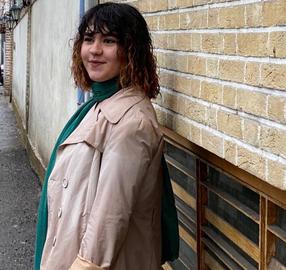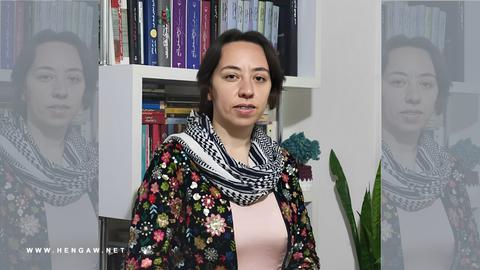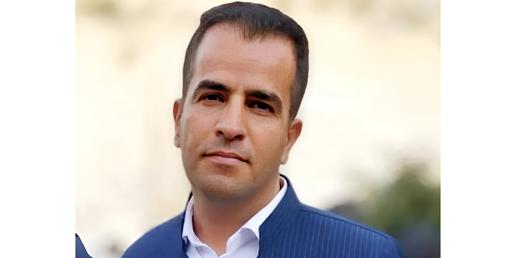In the days when the sounds of sirens and war anthems were more familiar to Iranian children than lullabies, one woman brought some much-needed fantasy and creativity back into their lives in the form of television shows populated by puppets and dolls.
Marzieh Sadat Boroumand Yazdi, actress, puppeteer, screenwriter and director of TV series and films, is a figure treasured by many Iranians who grew up in the 1980s. Were it not for her cheerful television programmes such as The School of Mice and Grandma’s House, those who were children during the horrific eight-year war between Iran and Iraq would not have remembered much except for the inflamed voices of radio and TV announcers narrating the number of casualties, deaths, POWs and military operations
Entertaining During War
Those days of war were a time when children sat in front of the TV because it was not safe to go to parks or other places outside to play. Even news broadcasts continuously warned them to keep away from the windows. And when the red siren sounded, the lights went out and every member of the family descended into the basement which they called the “shelter”. In those years Iranian TV had just two channels and they were dominated by the news.
In 1981 Boroumand staged and directed a 10-episode series of televised puppet shows for children, called The School of Mice. The names of its whiskered protagonists are etched into the memories of many Iranian children of that time, and the programme’s cheerful, uplifting jingle raised their spirits.
The warm reception The City of Mice received prompted Boroumand to produce a second series. The programme continued on Iranian state television up until 1984. In 1985 Boroumand went on to produce a movie, also called The City of Mice, featuring the same cast of puppet characters.
When interviewed about the impact of these broadcasts on children at the time, Boroumand laughed and said: “It was enough for me that when the new generation of cellphones, other gadgets and Bluetooth arrived, the opening music of The School of Mice was a ringtone for many young people.”
Feeling the nostalgia of youngsters for The City of Mice, Boroumand made a cinematic sequel that was screened in 2014. The mice were now 30 years older, like the children of the 1980s.
Censorship and “Zionist Ideals”
Later Boroumand broke her long silence over censorship of The School of Mice on television at that time. She told Etemad newspaper: “Dealing with the IRIB [Islamic Republic of Iran Broadcasting] officials was exhausting. They constantly read through the scripts and tried their best to discover some immoral or non-educational aspect in them.
“They criticised every funny and interesting move on the part of the mice. From their point of view, naming the mice using adjectives such as ‘Long-Tailed’ or ‘Long-Eared’ or ‘Chubby’ was immoral. The mice were not to grab food from each other and they were not to make noises in the classroom, because they thought it was bad.
“When we were taping the programmes we also had stories behind the scenes. Someone was constantly standing behind the partition and sneakily keeping watch, lest, heaven forbid, the bodies of the [male and female] puppeteers would touch each other during practice or recording sessions.”
This being the Islamic Republic, however, censorship was not the only cultural or political issue that Boroumand had to deal with in her career. In 2013 an ultra-conservative anonymous blogger known only as “M.M.” alleged that The City of Mice was created “in service of Zionist ideals,” aiming to subliminally depict and endear the history of Jewish people to Iranian youngsters.
The blogger’s conspiracy theory holds that the mice in the story who are following their teacher in search of their beautiful and plentiful city - previously built by their parents and dodging baddies on the way - are actually the Jewish people en route to the Promised Land. He suggests that they are under the leadership of Moses, facing various perils but arriving safely in the end. Having just watched the film again, “M.M.” asks, “What other films, animations and puppet shows of my childhood were made with content that served the Zionist ideal, which I watched joyfully and unawares?”
More Puppets, More Success
Mice were not Boroumand’s only influential characters. In 1987 she produced another puppet show for children, Grandma’s House. In each episode of this programme an elderly grandmother and her pets tell a different story. The opening of each tale was heralded by a cheerful Iranian poem.
Following her success in children’s entertainment Boroumand began to produce TV programmes with wider family appeal. Some of her subsequent works, which took on a more nuanced, ironic tone, were among the most popular TV programmes of the day in Iran.
When asked why, in her opinion, her works have been so enduringly popular, Boroumand points to her family background. She has two twin sisters, Ehteram - a TV presenter and audiobook producer who was in charge of children’s broadcasting in Iran 11 years before the revolution - and Razieh, who is also a TV presenter, actor and puppeteer. “When all members of the family have a hand in art they all support you and everything works better,” she says.
In March 2023 Boroumand was elected CEO of Iran House of Cinema, an association of motion picture guilds, by its board of directors. She was the first woman to hold this position, but she resigned after eight months in the wake of controversies surrounding her statements on filmmakers’ involvement in the Israeli conflict. She later clarified her stance, voicing her revulsion for war and violence, and expressing her condemnation of the tragic events in Palestine.
visit the accountability section
In this section of Iran Wire, you can contact the officials and launch your campaign for various problems

























comments